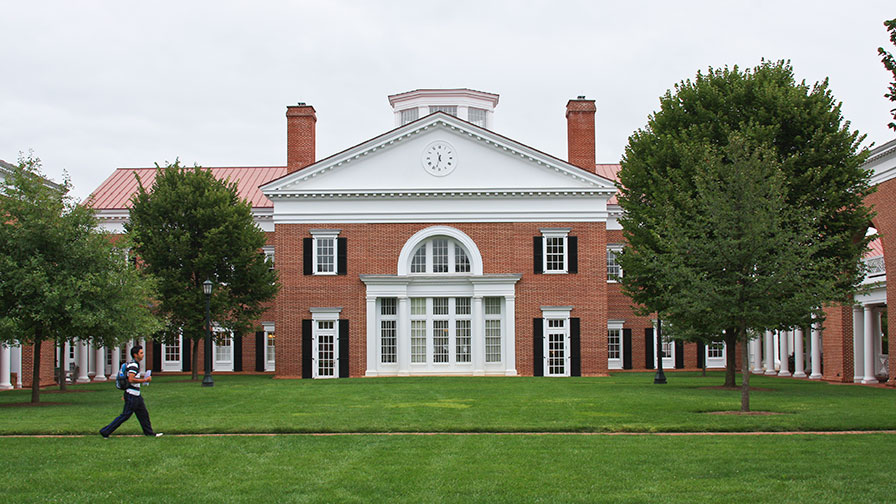
Darden School Alumni Create Opportunities for Business to Improve (Not Just Pave) the Natural World
The infrastructure on which modern American society has come to rely — neighborhoods, shopping centers and roads to traverse — often comes at a cost. Construction, while useful to humans, can also alter the natural habitats of plant and animal life. A new case, presented in the “Business and Sustainability” course at the University of Virginia Darden School of Business, challenges students to contemplate the creation of a profitable business that would also help offset the impacts of development. The case, which was co-created by three Darden alumni with help from two professors, brings wetlands mitigation banking to life and will be available soon through Darden Business Publishing.
Wetlands mitigation banking is a process in which developers are able to ameliorate the harm caused to a natural wetland. By federal law, there can be no net loss of wetlands due to construction. Therefore, when a project occurs in a challenged wetland area, developers offset the harm they might cause by purchasing wetland credits from a company that has constructed new wetland areas.
In their case, Ben Noland (MBA ’11), Coleman “Whit” Wall (MBA ’11) and Chris Haffenreffer (MBA ’11), examine the risks and rewards of entering the mitigation banking business. Initially developed as a project for a taxation course, the wetlands mitigation banking case took on a life of its own.
“We actually wrote the basis for this case as our final project for Professor Mary Margaret Frank‘s ‘Taxation and Management Decisions’ class,” said Noland. “It was initially a focus on business entity choice, but as the group dove deeper into the mechanics and economics behind wetland mitigation banking, we got more and more interested in this idea.”
To pursue their idea of turning the project into a case, the students teamed up with Darden Professor Richard Brownlee and his colleague, UVA McIntire School of Commerce Professor Mark White. The pair co-teach the “Business and Sustainability” course. They directed the students in their efforts and introduced the case to students this past fall.
Brownlee, who recently participated in a research study on the existence of sustainability cases carried out by Ernst & Young, enjoyed helping to develop and teach the wetlands case. It was a departure from the types of cases he usually teaches.
“Many of the students, much like me, weren’t familiar with the whole concept. So just being exposed to wetlands mitigation banking and how you would put something like this together taught our students the applicability of financial analysis tools, and showed them the complexities of trying to deal with natural systems,” said Brownlee.
White, who is an expert in corporate finance and sustainability practices, was a natural partner in developing the wetlands case.
“I began pretty much in straight corporate finance. But for quite some time now I’ve been interested in how business, and particularly the financial evaluation of things, interface with the natural world,” said White. “For a long time we didn’t really think about the benefits that humans receive from nature, such as the dollar value of pollination services from bees, but this is a service from which humans benefit.”
White also pointed out that there is a cost from human interference with nature, such as when bees disappear.
“So a lot of my research could be categorized as putting a price on the planet,” he said. “That is, trying to learn the dollar value of these services. We do this because people have different incentives to do things and one of the strongest incentives is economic,” he added.
“Having worked in the environmental services industry prior to Darden, I found it frustrating that job opportunities were largely limited to due diligence and compliance-related roles,” said Wall. “Wetland mitigation banking is a great way to pair an environmental interest or background with business fundamentals to provide creative market solutions for sustainable development. This case is not necessarily typical, but it demonstrates how companies can profit from these ventures while at the same time doing good for the environment.”
While Noland, Wall and Haffenreffer helped bring the wetlands mitigation business model to life inside of a Darden classroom, another set of Darden alumni showed how they make wetlands mitigation banking work in real life.
Aaron Revere (MBA ’02), general manager of Falling Springs LLC and James Parker (MBA ’08), manager of Falling Springs, launched their wetlands mitigation banking company in 2008. A wholly owned subsidiary of Tredegar Corporation, Falling Springs has grown to contribute to the bottom line of its parent company. Revere had been a longtime visitor in Professor Andrea Larson’s “Sustainable Innovation and Entrepreneurship” course, where he discussed his company’s sustainability strategy. Revere also participated in Brownlee and White’s course, answering questions for students and sharing how he introduced the concept to Tredegar. To watch their story, visit Darden’s YouTube channel.
Together, these Darden alumni show the limitless opportunities for business to improve — not just pave over — society.
“I know society expects more from business for a couple of reasons, business is capable of doing more, business is probably better at innovating and responding to market opportunities and assembling the resources, financial and otherwise, to get the job done and it can move quickly,” Brownlee added.
The University of Virginia Darden School of Business prepares responsible global leaders through unparalleled transformational learning experiences. Darden’s graduate degree programs (MBA, MSBA and Ph.D.) and Executive Education & Lifelong Learning programs offered by the Darden School Foundation set the stage for a lifetime of career advancement and impact. Darden’s top-ranked faculty, renowned for teaching excellence, inspires and shapes modern business leadership worldwide through research, thought leadership and business publishing. Darden has Grounds in Charlottesville, Virginia, and the Washington, D.C., area and a global community that includes 18,000 alumni in 90 countries. Darden was established in 1955 at the University of Virginia, a top public university founded by Thomas Jefferson in 1819 in Charlottesville, Virginia.
Press Contact
Molly Mitchell
Associate Director of Content Marketing and Social Media
Darden School of Business
University of Virginia
MitchellM@darden.virginia.edu





